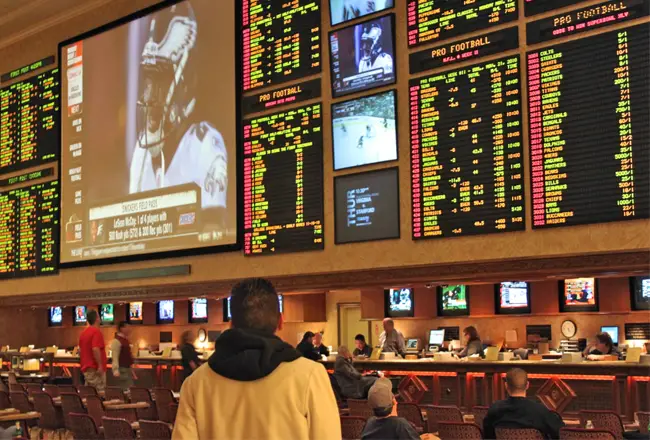Gov. Ned Lamont has come out against a bill that would grant the state”™s two federally recognized tribes exclusive rights to manage the state”™s proposed sports betting operations ”“ once again plunging the possibility of a casino in Bridgeport into serious doubt.
 Introduced in January, “An Act Concerning Jobs In and Revenue From the Gaming Industry,” proposed by state Sen. Cathy Osten, D-Sprague, and endorsed by Senate Democratic leaders, would give the Mohegan and Mashantucket Pequot tribes exclusive rights to sports betting at casinos and online throughout Connecticut.
Introduced in January, “An Act Concerning Jobs In and Revenue From the Gaming Industry,” proposed by state Sen. Cathy Osten, D-Sprague, and endorsed by Senate Democratic leaders, would give the Mohegan and Mashantucket Pequot tribes exclusive rights to sports betting at casinos and online throughout Connecticut.
That would include a casino in Bridgeport to be owned and operated by the tribes, as well as the rights to iGaming, which allows consumers to bet on the outcome of an event or game online.
“We plan on distributing $88 million more in gaming revenue to all Connecticut cities and towns,” Osten said at the time. “That”™s up from the current $51 million ”“ with the possibility of another $25 million or so for several targeted, impacted communities. So on top of the all new jobs for the state and the economic boost that will generate, we will be distributing more tribal funds to Connecticut cities and towns than we do now.”
But Lamont yesterday endorsed a different bill, proposed by Public Safety Committee Chairman Rep. Joe Verrengia, D-West Hartford, which would allow not only the tribes, but also the operators of off-track betting locations and the Connecticut Lottery, to run sports betting.
The governor prefers the latter approach “because it is simpler, focuses exclusively on sports betting, and is therefore more achievable in this short legislative session,” Lamont’s spokesman, Max Reiss, said in a statement. “It also builds upon the state’s existing partnership with the tribes, is more likely to withstand legal challenges from third party competitors, and promotes a fair and competitive sports betting market outside the tribes’ reservations.”
Lamont “wants to sign a sports betting bill into law over the next few months,” the statement continued. “Any such proposal, however, must be designed to avoid and withstand endless legal challenges, include multiple, competing mobile platforms off the tribes’ reservations, and build upon the existing footprints of all of the state’s existing gaming operators.”
The tribes have consistently resisted efforts to allow other entities to operate casino gambling, maintaining that would be a breach of their exclusive rights to gaming. They have threatened in the past to withhold slot revenue payments to the state, which are worth approximately $250 million each year, and to take the matter to court.
“Unfortunately, Governor Lamont appears to be saying that the state can either adopt his singular proposal on gaming, or do nothing at all,” Mohegan Chairman James Gessner said in a statement. “That simply isn’t true. The governor’s proposal would put both the tribal nations and the state of Connecticut in an untenable position, resulting in certain litigation and ongoing missed opportunity for Connecticut taxpayers who would continue to watch neighboring states grow jobs and revenue in this area as Connecticut stands still.
“Thankfully, Connecticut has other options,” Gessner continued. “Proposals by Senator Osten and others represent a clear, good faith baseline to get something done this session. The tribal nations have been committed to those conversations, and have shown a demonstrated flexibility at the negotiating table. We will continue to work with willing partners who understand and appreciate not only our existing rights as sovereign nations, but our enormous contributions to the state, its economy, and its employment base.”






















